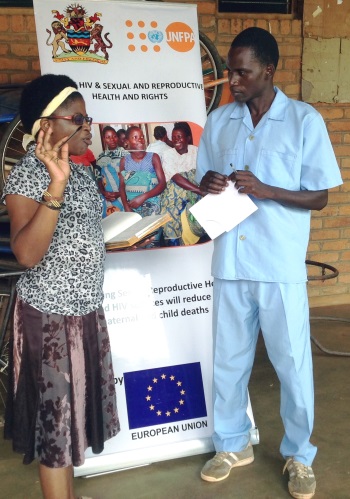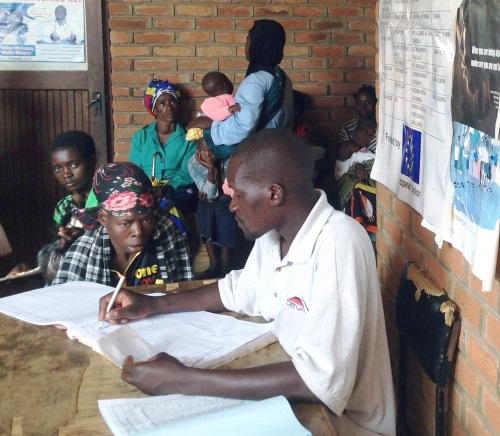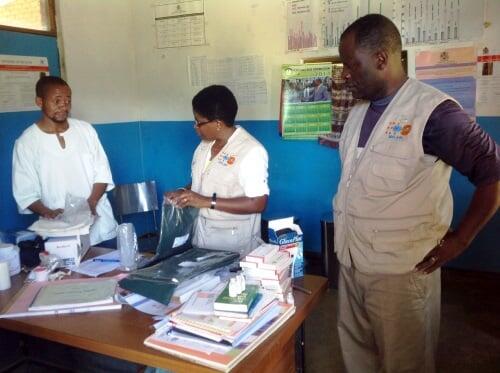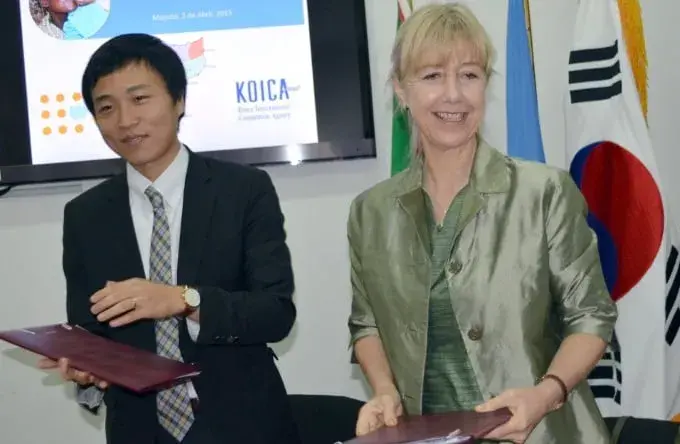Health facilities in Malawi that provide HIV services simultaneously with sexual and reproductive health services have recorded an increased uptake in antiretroviral drugs.

This improvement has been shown by the Sexual and Reproductive Health and Rights (SRHR)/HIV Linkages project, a UNFPA initiative in seven countries in the East and Southern Africa Region (Zimbabwe, Zambia, Botswana, Lesotho, Swaziland, Namibia and Malawi).
The project, introduced in 2010 with financial support from the European Union and technical support from UNFPA and UNAIDS, has been rolled out by Malawi’s Ministry of Health in 15 health facilities in the districts of Mangochi, Nkhatabay and Dedza. It has facilitated improved uptake and delivery of integrated quality services for HIV and SRHR in these health facilities.
UNFPA National Programme Coordinator for the SRHR/HIV Linkages project in the Malawi Country Office, Thandiwe Mijoya, said there is clear evidence that closer linkages between HIV & AIDS interventions and sexual and reproductive health care have been reached in the three years that the project has been running in Malawi.
The project was established due to a growing consensus that linking HIV and SRHR would make a big dent in HIV and AIDS and yield positive dividends for health and development, thereby contributing to the wellbeing of populations, said Ms. Mijoya. Improving linkages between HIV and SRHR can improve the lives of key populations affected by HIV and ensure that both women and men, whether they suffer from sexual and reproductive ill-health, or are at risk of HIV or are living with HIV, have access to a continuum of services that meets their needs related to HIV and SRHR.

“Before we adopted the project, health facilities would suspend the provision of all other services at the clinics for one day a week to carry out antiretroviral (ARV) and antiretroviral therapy (ART) services. This made many patients seeking HIV services shun the clinics as they found it stigmatizing because communities knew which people were pursuing HIV treatment,” she said.
Health facilities have now managed to integrate HIV services, RH services and all other services in such a way that they are conducted in the same room and on every day.
“All services are done routinely and we have recorded an increased uptake in antiretroviral drugs in all 15 health facilities that were are working in,” she said.
The challenge in the health sector has been that many facilities offer only selected HIV or SRH services, hampering effective integrated service delivery.
Thokozani Chaona, a nurse/midwife technician at Mkumba Health Centre in Mangochi, agreed with Ms. Mijoya. The clinic carries out testing and counselling, and provision of ARVs in the same room that is used for the provision of general clinic services, family planning services and ante-natal care.
“We used to see many people loitering in the grounds of the clinic on the days that we provided HIV care as they were embarrassed to come and seek HIV services. They did not have any privacy. The linkages project has helped us reach out to everyone without promoting discrimination,” she said. The project has also encouraged the involvement of men in pregnancy and childbirth issues.
“We have noted that a lot of men are accompanying their partners when they come for pregnancy tests, and antenatal and post-natal care, because of the integration of services,” she said.
Hanz Katengeza, Reproductive Health Officer at the Reproductive Health Unit (RHU) of the Ministry of Health, said the Government was pleased with the results of the SRHR/HIV Linkages project.
“What is happening in the 15 health facilities is such a success and we would like to replicate this model in all facilities around the country. We have already started sensitizing health personnel to take up the lessons learnt from the pilot project and ensure that they intergrate all health services,” he said.
The Ministry would also be lobbying to have SRHR and HIV linkages integrated in the country’s health and development plans, he said.
~ Pilirani Semu-Banda



